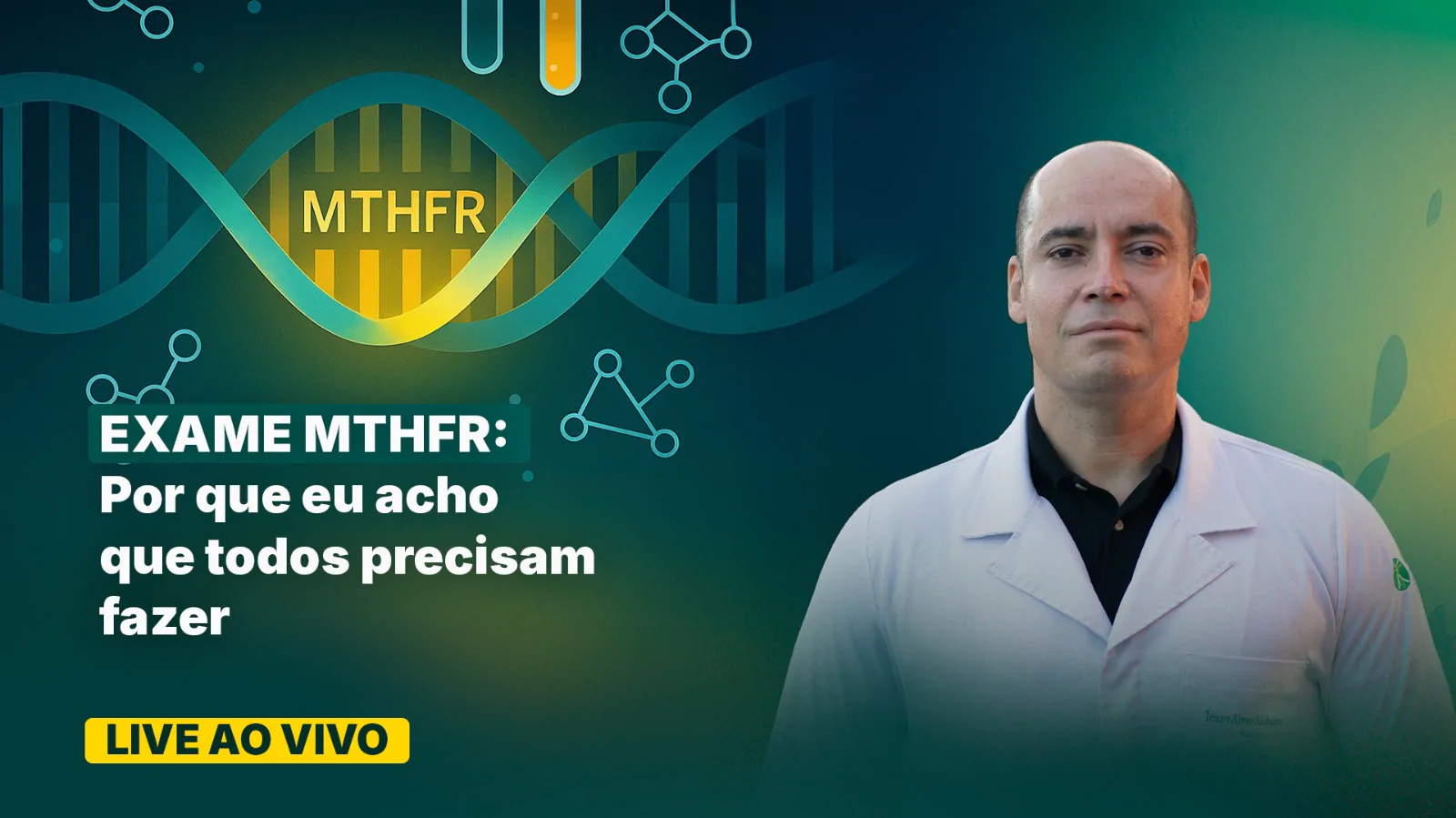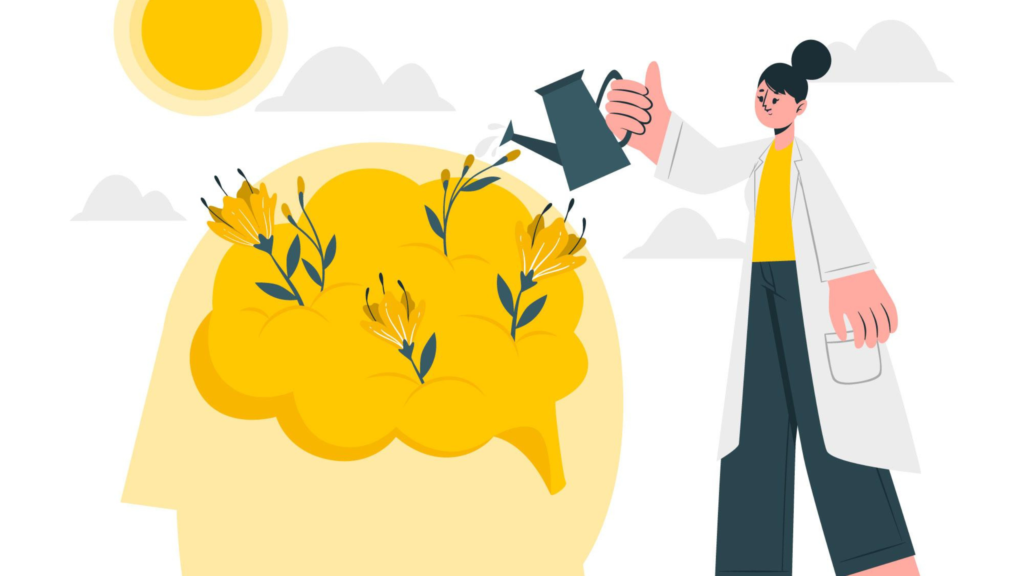Dive into the world of thyroid with this informative and comprehensive post. With a variety of topics, from hypothyroidism and hyperthyroidism to homeopathy and iodine, this content is more than just a source of information - it's an opportunity to learn and expand your knowledge and take better care of your health.
VIDEO 1: Thyroid - Questions and answers
VIDEO 2 - ANTI TPO HIGH what is it and what to do?
Video 2: 7 Quick Facts about the THYROID - To help your HEALTH
Video 3: Thyroid tests - the basics so you can investigate WELL
Video 4: 12 things that mess up the thyroid (and/or its hormones)
Video 5: Live on thyroid - with Drs. Gustavo Sisant and Ícaro Alves Alcântara
On my Instagram (https://www.instagram.com/DrIcaroAlves/), in June 2019, I made a series of posts that I'm sharing below, in text form, on the subject of “Do you have a thyroid problem but don't know it?”.
POST 1
For example, hypothyroidism that is poorly addressed, diagnosed and/or treated and which may be causing or aggravating several of your symptoms and illnesses?
To help with the question, I think it's important for you to know and consider:
1- You can find the basis for knowing what the THYROID is, this fundamental gland for the metabolism of all the body's cells, getting to know it better and obtaining general tips for dealing better with its health here: https://icaro.med.br/curiosidadestireoide/
2- HYPOTHYROIDISM is the most common thyroid disorder and can cause or aggravate all of the above (and much more): tiredness, fluid retention (bloating), infertility, constipation, poor memory, low immunity, difficulty losing weight, hair loss, weak nails...
3- MANY people out there don't know they have hypothyroidism (i.e. there are many patients “suffering” without a diagnosis): is this YOUR case?
4- Many people already have a diagnosis of hypothyroidism but their “treatment” is based almost solely on adjusting the monthly dose of T4 they use (Levothyroxine = Puran or Euthyrox or Synthroid or Levoid): this constantly fails to control hypothyroidism properly and sufficiently.
5- The diagnosis (and follow-up) of hypothyroidism should not be based solely on changes in tests: the detailed clinical picture felt/informed by the patient is the most important! Yes: not all hypothyroidism “shows up” in the few tests most conventionally ordered in the doctor's office.
6- Most thyroid problems occur in women. Did you know that?
POST 2
7 - Most of the symptoms related to hypothyroidism are mistaken by many health professionals for “things of age”, which the patient “must merely accept, learn to live with and move on”.
8 - Hyperthyroidism is often suspected because patients report one or more of the following: tachycardia, arrhythmia, osteopenia/osteoporosis (more on this in https://icaro.med.br/saudedosossos/), hyperglycemia and anxiety (more on this in https://icaro.med.br/ansiedade/).
9 - Iodine is essential for the proper functioning of the thyroid, and a lack of this mineral in the diet is relatively common.
ADDITIONAL VIDEO: Iodine - the basics you need to know
10 - The primary function of hormones (https://icaro.med.br/hormonios/) of the thyroid is to regulate, in the tissues where they act, the rate of conversion of oxygen and calories into energy - for this reason, they are fundamental for the proper adjustment of metabolism.
11 - In general, the healthiest thing is that you can't easily feel your thyroid when you try to touch it.
12 - Having a thyroid nodule does not mean that it will impair your hormone production.
POST 3
13 - Exposure to low temperatures in people with good basic health (https://icaro.med.br/saude/), can stimulate the hypothalamus in the brain (https://icaro.med.br/cerebro/), to produce more TRH, which encourages the pituitary gland to produce TSH, which stimulates the thyroid to produce mainly T4 which, when converted peripherally into T3 (https://icaro.med.br/T3/), helps to keep us warm, among many other functions.
14 - For this reason, people who habitually “feel colder than others” may have some degree of hypothyroidism.
15 - Many cases of “hypothyroidism” are not actually due to thyroid problems: in these situations, the patient exhibits symptoms of hypo, but in fact is either not correctly converting the T4 into T3 in the tissues or their T3 is not finding the right place to act (hormones only act when they “fit” into specific receptors - find out more at https://icaro.med.br/Hormonios/).
16 - High levels of cortisol, the so-called “stress hormone”, reduce levels of TRH, TSH, T4 and T3 - in other words, poorly managed stress can cause or aggravate hypos!
17 - The thyroid needs iodine and the amino acid tyrosine to produce its hormones.
18 - The enzymes that convert T4 into T3 in the body depend on the mineral selenium (it is part of them), and this conversion is also impaired by other nutritional deficiencies, drugs and poisoning.
POST 4
19 - T4 can be converted peripherally into reverse T3, which is an inactive form of thyroid hormone: where it fits, it will block the T3 cell receptors and so the patient's T3 will have no way of acting locally.
20- We all produce varying amounts of reverse T3 (T3r) every day, but when it gets too high, the patient may even have “normal” levels of TSH, T4 and T3, but will tend to show symptoms of hypothyroidism (https://icaro.med.br/hipotireoidismo/) because T3 cannot act properly.
21 - Health professionals rarely measure reverse T3 or value its importance.
22 - Several factors can cause the body to convert more T4 into reverse T3 than into T3 (https://icaro.med.br/T3/) or producing less T4 or converting less T4 into T3: bad lifestyle habits (https://icaro.med.br/15habitos/), nutritional deficiencies, poisoning, hormonal deficiencies (https://icaro.med.br/modulacao), among others.
23 - 99% of thyroid hormones circulate in the blood bound to carrier proteins, but only the “free” fraction is metabolically active (for example, T4 and free T4 are measured in tests).
24 - The more carrier proteins, the lower the availability of “free-acting thyroid hormones”, which can be another cause of hypothyroid symptoms. Some factors that increase levels of carrier proteins are: use of hormonal contraceptives, pregnancy and use of non-bioidentical or non-isomolecular hormone products (https://icaro.med.br/hormonios/).
POST 5
25 - In hyperthyroidism, the body (and even mental activities) suffer from excessive acceleration of the metabolism (speed and quality of functioning), which can lead, for example, to excessive weight loss (including lean mass), tachycardia, intense sweating, nervousness, anxiety, irritability, etc.
26 - Approximately 1% of the population suffers from hyperthyroidism, and many don't even know they have it; it is estimated that more and more people will develop this condition, since excess stress and/or dealing with it badly are among the main causes or aggravating factors of hyperthyroidism.
27 - The rare extreme hyperthyroidism is called thyrotoxicosis and is a medical emergency that can include fever, exhaustion, hypertension and can be fatal in 50% of cases.
28 - The following can lead to hyperthyroidism: Graves' disease (excessive production of antibodies against the thyroid itself, often associated with sustained excessive stress), inflammation of the thyroid (thyroiditis) and excessive iodine intake (rare).
29 - Excess thyroid hormones significantly increase the loss of the amino acid L-carnitine through the urine, which is very important for energy generation, brain and muscle function, fat burning, among other things.
30 - The most common conventional treatments for hyperthyroidism are: drugs to inhibit T3 production, destruction/removal of the “hyper-reactive” part of the gland and drugs to relieve symptoms (high blood pressure, tachycardia, anxiety, etc.). Conventionally, little has been done to investigate the causes of hyperthyroidism and try to act on them.
POST 6
31 - Every time the thyroid stops producing enough hormones (mainly T4), what little T4 is converted into T3 in the tissues (the active hormone - https://icaro.med.br/T3/) OR that T3 cannot act properly on its receptors, metabolism falls, becomes slow, insufficient: the end result of these conditions is commonly called hypothyroidism (https://icaro.med.br/Hipotireoidismo/), even when “the problem” doesn't necessarily lie with the thyroid itself.
32 - The main symptoms of hypothyroidism are: fatigue, weakness, excessive sensitivity to cold, constipation, weight gain, dry skin, hair loss (https://icaro.med.br/QuedaDeCabelos/), dryness and thinning of the hair, muscle cramps, depression (https://icaro.med.br/Depressao/), worsening brain function (https://icaro.med.br/cerebro/).
33 - Of every 10 cases of hypothyroidism, 9 occur in women.
34 - There is subclinical hypothyroidism, where TSH is elevated, but T4 and T3 levels are within the “normal” range (understand this concept in icaro.med.br/Exams).
35 - Almost 10% of women have subclinical hypothyroidism, but after the age of 60, this figure doubles.
36- TSH above 2 microUI/ml can already indicate a thyroid functioning below what it should!
POST 7
37 - A study published in the Lancet showed that several levels of TSH within what is considered “normal” are associated with health complications:
- TSH > 2 microIU/ml: increased risk of developing hypothyroidism in the next 20 years and increased risk of developing autoimmune thyroiditis.
- TSH between 2 and 4: if there is high cholesterol (common), it is usually controlled with T4 replacement.
- TSH above 4: higher risk of heart disease.
38 - Another study shows that around 40% of people are taking the “wrong” doses of T4: around half are taking too much and half are underdosing.
39 - Hypothyroidism commonly causes or aggravates the following conditions: gastrointestinal problems, depression (https://icaro.med.br/Depressao/) and psychiatric disorders, cognitive decline, cardiovascular disease, increased blood pressure (https://icaro.med.br/hipertensao/), high cholesterol (https://icaro.med.br/Colesterol/) and atherosclerosis, increased homocysteine levels, increased C-reactive protein (an inflammatory marker), metabolic syndrome, problems with the reproductive system, fatigue and tiredness (https://icaro.med.br/fadiga/).
40- Basically, the following are interesting tests to evaluate the thyroid in a more complete way: TSH, T4 and T3 (especially the free fractions), reverse T3 (https://icaro.med.br/T3/), antibodies (anti-TPO and anti-thyroglobulin), thyroid ultrasound (if nodules and similar are found, with doppler) and serial basal temperature measurements. However, it is important to remember that none of these tests alone confirm or exclude the diagnosis of thyroid problems or problems involving its hormones (https://icaro.med.br/Hormonios/).
41 - On tests to assess the thyroid and its functioning: https://icaro.med.br/exames-para-avaliacao-da-tireoide-o-que-voce-precisa-saber/
POST 8
42 - Hypothyroidism reduces the motility of the muscles in the wall of the intestines, which can cause or worsen constipation. It can also reduce the motility of the esophagus, causing difficulty swallowing, burning, indigestion, nausea and even vomiting. These digestive problems can lead to bacterial overgrowth in the small intestine, resulting in abdominal discomfort, distension and gas/flatulence (https://icaro.med.br/SaudeIntestinal/).
43 - Hypothyroidism is often associated with panic disorder (https://icaro.med.br/ansiedade/), depression (icaro.med.br/Depression), bipolar disorder and worsening cognition (brain performance - https://icaro.med.br/cerebro/). More than 70% of patients who don't respond well to antidepressants are very likely to have insufficient thyroid function and/or hormones.
43 - Patients with low thyroid or thyroid hormone function often experience various symptoms of worsening mental function, such as slow thinking, slower processing of information, difficulty remembering names, etc. (https://icaro.med.br/SaudeMental/). These symptoms can lead to a misdiagnosis of depression. Patients with subclinical hypothyroidism, for example, show signs of reduced working memory and reduced speed and efficiency of sensory and cognitive processing.
Thyroid and its T3 (triiodothyronine) and T4 (thyroxine) - Why is T3 barely talked about in Brazil and many (even “consensus” out there) even contraindicate it?
First, read this:

I've always wanted to understand why most doctors, especially endocrinologists, barely mention T3 when evaluating and treating thyroid problems if this noble gland produces both. And when we all know that T3 is more than 5 times more potent and active than T4 in the body... And also understand why you can get bioidentical T3 manipulated or abroad (Armour, for example) but not in Brazil...
Talking to an experienced and competent pharmacist, SHE explained to me that:
- The pharmaceutical industry cannot “stabilize” T3 to the point of making it last for years in a tablet or capsule, thus having a “shelf life” that complies with the minimum indicated by Brazilian legislation; therefore, the pharmaceutical industry has NO way of manufacturing it and thus profiting from it by selling it in medicines it has patented;
- Many doctors are updated “by the pharmaceutical industry”, directly or indirectly: articles delivered by laboratory representatives in the doctor's office, medical congresses (guess who the main sponsors of these are?), medical books (many “sponsored” by the aforementioned industry, directly or via sponsorship “of their authors” and their “research”), “official” consensus/guidelines (behind the scenes, often, who can be...); in other words, everyone assumes as truth what they have access to, through channels they deem “reliable”...
- If only compounding pharmacies (which can handle WAY shorter expiration dates) can compound and profit from T3, do you really think the pharmaceutical industry would speak well of it? Even if it is actually GOOD for a number of cases, especially when a large proportion of patients with hypothyroidism don't properly convert T4 into T3 (for example, proven in a 2009 Harvard study with volunteers)?
In other words: what has been explained to me is that the pharmaceutical industry (not least because of the numerous and sufficient international scientific evidences) knows that T3 would be useful in many cases of hypothyroidism (where many patients can even take high amounts of T4 but have little T3 to act in the body, due to low conversion, thus persisting symptoms of hypothyroidism) but that thinking only of profits from the sale of T4, it acts behind the scenes so that T3 is not only “forgotten” but even contraindicated via official consensus!
I REALLY believe that all of this is logical and true, don't you?
Now, when it comes to hypothyroidism, it's important to understand the following:
- Many people have this condition and are unaware of it.
- Hypothyroidism can cause or aggravate various symptoms and diseases.
- Many patients do not receive a full or proper assessment of their thyroid glands, the hormones they produce and the effects of these hormones on the body and mind. This results in insufficient or even wrong treatments in some cases.
- Treating hypothyroidism properly goes beyond just prescribing drugs such as Puran, Euthyrox, Synthroid or Levoid (and similar ones such as Levothyroxine Sodium) to patients.
Do you want to know more about this and much more?





















